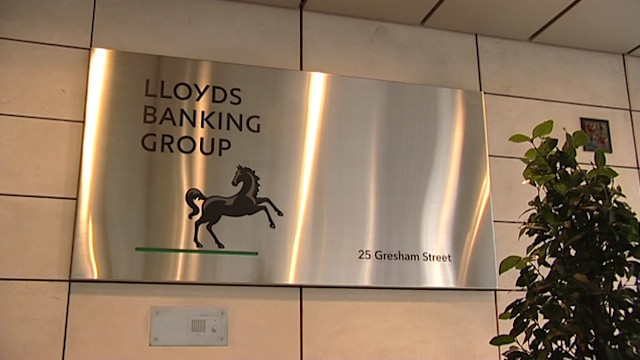Lloyds Bank: Steady drip of shares helped David Cameron win power

Another day, another £500m ($778.4m, €692.6m) of shares in Lloyds sold by the government.
The surprise election victory rallied shares in Lloyds to multi-year highs of over 80p, inviting more haymaking for good measure. So far the taxpayer-backed stake in the bank, which originally stood at over 40%, is now below 20% and some £10bn has been recouped to the public purse - Lloyds was rescued at a cost of £20bn to taxpayers.
Never short on cynicism, on 11 May the Conservative Party exercised its prerogative to suggest shares in RBS (the bad bank in this equation) may now be sold at a loss. This is a contravention of the governing principle that the public should at least get their money back – but hey, who's going to complain? And anyway the Conservatives can always invoke Labour's incompetence back when it all went wrong.
Most people know the collapse of the banking sector would probably have been as bad as it was regardless of who was in power, it just happened to fall on Labour's watch. So it has been with a degree of skill that the Tories have now made them pay for it twice over.
UK Financial Investments began the sale of Lloyds back in September 2013 when £3.2bn worth of shares were sold at 75p (73.6p is the break-even point of the bailout), then in March 2014 a further £4.2bn tranche was sold at 75.5p. In August 2014, plans to sell shares to the public were shelved, probably with one eye cast back on the Royal Mail fiasco and the other on the election.
Market watchers noted the government "has tended to make regular forays into the market to drip feed a sale of the taxpayer-owned stake once Lloyds shares went above the 80p mark".
In fact there have been six separate sales of Lloyds shares in 2015. A press officer representing UKFI said it never comments on such things but conceded these sales became more frequent as the election drew closer.
'Close' election race
As the polls ranked the Tories and Labour neck and neck, an "orderly and measured" Lloyds disposal became a near weekly event, with Osborne studiously tweeting about how much has been recovered and used to pay down the national debt.
Letters between the Treasury and Chancellor spoke of a process mitigated by market conditions and taking place against the backdrop of the European Central Bank's quantitative easing programme.
Towards the end of February, the whole process was given an enormous shot in the arm. Lloyds announced its first dividend in six years, in other words since the financial crash. The Morgan Stanley-brokered drip feed beat a steady rhythm, firstly directed at the business community and then resonating over the public in general.
This has turned out to be a campaign masterstroke for the Tories. These slow-measured sales hit exactly the right tone in the immediate run-up to the vote. Royal Mail was a lesson in taking it slow – and just look what happened to the architect of that sorry business.
And every time the Tories trumpeted a further disposal of Lloyds, this diminutive but palpable boon to taxpayers carried with it a reminder of the financial calamity that happened under a Labour government.
The approach taken with Lloyds wasn't untoward either, like those under the radar tactics of Cameron's campaign manager Lynton Crosby, the so-called "Lizard of Oz". It was workman-like while being powerful and insidious.
The economy won this election. In the end, the public were convinced not to risk trusting Labour again with the country's finances.
Royal Bank of Scotland has remained unsellable, though, and has perhaps remained emblematic of a Labour government's loose-handed financial dealings. Words like "measured" and "resilient" don't apply in the case of RBS and unsurprisingly the Tories have left well alone.
That said, Paddy Power, whose expertise in the unknown is unrivalled, has tipped RBS at 11/10 as the most likely asset to be sold next, ahead of Lloyds at 6/5. Though at this present moment in time, the turf accountants at the Treasury probably couldn't care either way.
© Copyright IBTimes 2025. All rights reserved.






















